MercoPress. South Atlantic News Agency
Tag: Brexit
-
Tuesday, September 26th 2017 - 18:17 UTC
Labour conference forced to address Brexit to calm pro/EU MPS and ensure party unity

UK Labour activists have backed a statement clarifying the party’s position on Brexit. The eleventh-hour statement was waved through by a show of hands in the main conference hall, after another day of division in the party over Britain’s EU withdrawal.
-
Tuesday, September 26th 2017 - 14:36 UTC
Scotland and London hold “constructive talks”, but still far from a Brexit deal
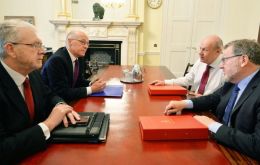
The Scottish and UK governments have held “constructive” talks over Brexit, but are still a long way from a deal. Scotland's Deputy First Minister John Swinney and Brexit minister Mike Russell met First Secretary of State Damian Green in London to discuss concerns about the EU Withdrawal Bill.
-
Tuesday, September 26th 2017 - 10:31 UTC
EU and UK clash over Brexit: both sides set conditions to advance
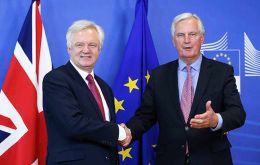
The EU and Britain resumed Brexit talks on Monday with fresh clashes, dimming hopes that a speech by Prime Minister Theresa May could provide a breakthrough in unlocking stalled negotiations. The EU's chief negotiator Michel Barnier insisted that he would not discuss May's call for a two-year post-exit transition deal until there was progress on key issues, including Britain's divorce bill.
-
Tuesday, September 26th 2017 - 07:51 UTC
PM May/Tusk meeting to advance on the Florence “constructive” speech
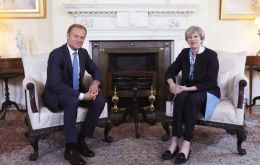
British Prime Minister Theresa May will meet European Council President Donald Tusk on Tuesday - the first time since the PM set out plans for a two-year transition period post-Brexit. It comes a month before the council will decide whether sufficient progress has been made to begin trade talks.
-
Monday, September 25th 2017 - 10:56 UTC
Labour divided over Brexit policy, but Corbyn upbeat about winning government for ten years

Jeremy Corbyn is resisting pressure from Labour MPs to commit the party to keeping the UK in the EU single market after Brexit. As activists gathered in Brighton for the start of Labour’s annual conference, 30 senior figures have written an open letter calling for the party to do whatever it takes to keep Britain in the single market and the customs union.
-
Friday, September 22nd 2017 - 12:00 UTC
Theresa May “make Brexit work” speech: a two-year transition period post 2019 and 40bn Pounds
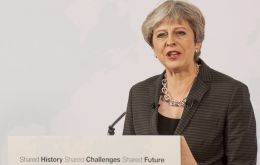
Theresa May will tell EU leaders there is a shared responsibility to make Brexit work “smoothly” as she attempts to break the deadlock in negotiations. In a major speech in Florence on Friday, she will say history will judge Brexit “not for the differences we faced, but for the vision we showed”.
-
Thursday, September 21st 2017 - 16:05 UTC
European Parliament Brexit negotiator visits Ireland to address border issue

The European Parliament's Brexit negotiator, Guy Verhofstadt, has said it is up to the UK to find a way to avoid new controls on the Irish border, which echoes the position already laid out by the EU's chief negotiator, Michel Barnier. Mr. Verhofstadt is in Northern Ireland to meet political leaders at Stormont ahead of a visit to the Irish border.
-
Tuesday, September 19th 2017 - 10:04 UTC
Tory disunity over Brexit “could hand power to Jeremy Cobyn's Labour Party”
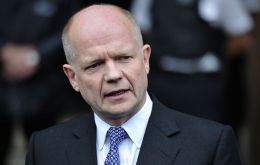
Lord Hague has become the latest senior Conservative to intervene within the party about how the UK should manage its withdrawal from the European Union. Writing in the Daly Telegraph, the former foreign secretary warned that disunity over Brexit could hand power to Jeremy Corbyn's Labour Party.
-
Tuesday, September 19th 2017 - 09:39 UTC
Scotland and London discussing terms of devolution under Brexit

The Scottish government is to outline plans to amend the legislation taking the UK out of the European Union. The Scottish and Welsh governments call the EU withdrawal bill currently under consideration at Westminster a “power grab” of devolved responsibilities, and have worked together to draw up amendments as a direct challenge to the UK government's legislation.
-
Monday, September 18th 2017 - 07:43 UTC
EU and UK business leaders voice concern about slow pace of Brexit talks

Business leaders have voiced concern about the slow pace of Brexit negotiations, warning it could affect a constructive exit from the EU. BusinessEurope, an umbrella group representing business federations across Europe, said companies needed certainty and time to prepare for future arrangements.
